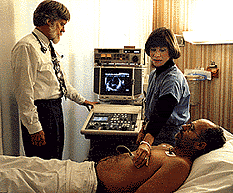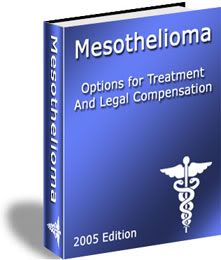Gefitinib in patients with malignant mesothelioma.
Title
Gefitinib in patients with malignant mesothelioma: a phase II study by the Cancer and Leukemia Group B.
Source
Clinical Cancer Research. 11(6):2300-4, 2005 Mar 15.
Clinical Cancer Research. 11(6):2300-4, 2005 Mar 15.
PURPOSE:
The Cancer and Leukemia Group B conducted a phase II study of gefitinib, an inhibitor of the epidermal growth factor receptor (EGFR) tyrosine kinase, in patients with previously untreated malignant mesothelioma.
EXPERIMENTAL DESIGN:
Eligible patients had unresectable pleural or peritoneal mesothelioma, measurable disease, no prior therapy, and performance status 0-1 by Cancer and Leukemia Group B criteria. Gefitinib (500 mg p.o.) was administered once a day for 21 days. Patients underwent restaging after every two cycles. Therapy was continued until disease progression or unacceptable toxicity.
RESULTS:
The most common grade 3 toxicities were diarrhea (16%) and nausea (12%). Of 43 patients enrolled, 1 patient (2%) had a complete response, 1 patient (2%) had a partial response, 21 (49%) had stable disease lasting two to eight cycles, 15 (35%) had progressive disease, and 5 (12%) had early deaths. One-year survival was 32%. Median survival and failure-free survival were 6.8% and 2.6 months, respectively. The 3-month failure-free survival was 40%. EGFR expression score by immunohistochemistry done in 28 patients was categorized as low or high expression: 97% had EGFR overexpression. The median and 3-month failure-free survival were 3.6 months and 40% for those patients with low EGFR expression compared with 8.1 and 40% for those with high EGFR expression.
CONCLUSIONS:
Although 97% of patients with mesothelioma had EGFR overexpression, gefitinib was not active in malignant mesothelioma. EGFR expression does not correlate with failure-free survival.




0 Comments:
Post a Comment
<< Home